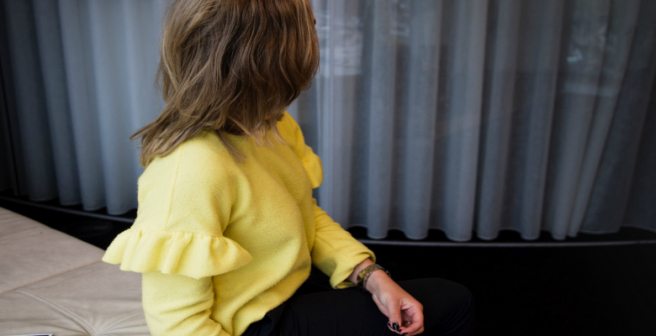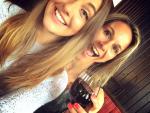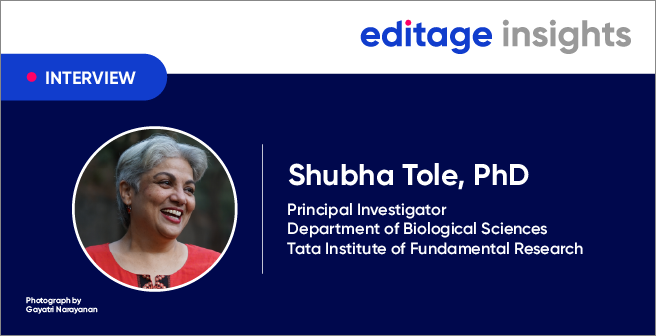My PhD viva story

My alarm was set for 6am on Monday, 1st May, 2015 – my Viva day; but I was wide awake by 5am. The sun was shining so I took my dogs for a long walk while I contemplated the day ahead.
My Viva team was meeting at 10am and I was to be ready to start at 11am so I had plenty time to get ready and have breakfast (even if all I could manage was a couple of bites of a piece of toast). Alana, my teenage daughter drove me to the University because I knew whichever way the day went, alcohol would be needed afterwards. I arrived about 8:30am, which in hindsight was silly. I was having coffee with one of my supervisors at 10am, but until then I swear the clock was going backwards. Coffee with my supervisor was nice and she kept me relaxed.
The chair of my Viva came to get me at 11am. I know some supervisors sit in on the Viva, but we decided this would only add to the pressure. I took a copy of my thesis in with me, which had post-it notes at various points in each chapter. As it happened, I only opened it a couple of times when my examiners alluded to something I had written.
We did have a meeting room booked but the coffee machine was broken so it was held in the Dean’s office, which was nice. I actually felt ok at this point, and it was lovely seeing my internal and external examiners. This was the first time I had seen my external examiners face-to-face and they both met me with a friendly smile and a firm handshake. I do like a firm handshake. However, when I sat down, nerves hit me hard and I could actually feel my whole body shaking. I also remember looking at the jug of water on the table thinking I would spill that everywhere if I tried to pour myself a glass because my hands were shaking so much. This was obviously quite clear to everyone as they told me to take deep breaths and try to relax. They congratulated me for completing my study and told me they had very much enjoyed reading my thesis. Well at least that’s what I think they said, so I’m just going to go with that.
The chair went over how the Viva would proceed while I tried to breathe. Just before everything started, I remember thinking back to the conversation I had with my supervisor. She said that this was not going to be an interrogation and that I should look upon it as an opportunity to discuss and showcase my research with people who had spent a lot of time reading it. I tried, but nope… I was still petrified.
I knew the first question was likely to be a gentle one, which it was. I was asked how my research came about. I’m pretty sure I waffled on a bit and I remember saying to myself in my head “for goodness sake Emma, shut up, they asked you a straightforward question. They don’t want your life story.”
While preparing for my Viva, as I wrote in a previous blog, I tried to predict as much as I could what my examiners would want to talk about. However, I also noted that unexpected or unanticipated questions would arise. This was true. What I would add to that is that sometimes it’s not about questions being unexpected, rather it’s the way they are asked. On one particular occasion, the way in which a question was asked floored me a little (when it was only about how I had analysed a specific data set). Because of this, I didn’t respond as articulately as I wish I had done. This I know is going to bother me for a while.
Quite a bit of time was spent on my literature reviews and underpinning theoretical frameworks. I had four literature reviews, which took a long time so I expected to be asked about them. Another topic that took up a big chunk of time was my methodological approach and philosophical underpinning. At one time, one of my examiners said he didn’t agree with me, which stopped me in my tracks a little. However, I was confident with the decisions I had made (and didn’t make) and I’m pretty sure I was able to explain why. I hadn’t anticipated that my examiners would say something like that, but the conversation wasn’t threatening or destructive in the slightest. Rather I was given time to think about it and encouraged to expand further. I am very thankful for that. The final main conversation was around my discussion chapter and implications, which I absolutely expected. For the most part this was fine, but also very challenging in parts.
I remember looking at the clock and realising that an hour and a half had passed and the chair saying something about rounding off. I think at that point, my shoulders dropped at least a couple of inches… although not for long. Something needed re-addressing so we returned back to my discussion chapter. Although at the time I wanted to run away, I’m really glad we spent a little more time on it as it made doing my corrections more straightforward. The viva ended with a question about the best and worst bits and then about something I had written in my personal reflection at the end of my thesis. I had said that after having conducted this study, I would have done things differently in my days as an infection prevention and control practitioner. What was this? Quite simply, I would have listened more.
I was eventually asked to leave the room while they deliberate (I’ve never been so pleased to be told to leave somewhere before). At that point, I honestly didn’t even know if my legs would get me up and out safely. However, they did. But as soon as I left the room and shut it behind me I burst into tears. I just became so overwhelmed and couldn’t control it. By now, a few people were outside so I went to my supervisor’s room for a coffee and to get some tissues. The chair came and gave me reassurance that I had defended my work very well and that she would come and get me later. Once I had calmed down, I can honestly say that I had absolutely no idea as to how it went and what the outcome would be. None whatsoever. I was about to find out much quicker than I expected. After about 20 minutes I was called back in. This really unnerved me as I immediately thought that after such a short period of time, it was bad news. As soon as I walked through the door, before anyone said a word, I burst into tears again – they weren’t even silent tears. I feel so embarrassed even writing this. I remember looking at everyone just staring at this crazy person crying her eyes out. Then eventually came three words tucked up in a sentence that I have dreamt about for so long: Congratulations. Minor. Corrections. Guess what? Yep, more tears!
After a period of calming down and emptying the tissue box, I listened to their feedback that I defended my work very well and what corrections they wanted me to do. I completely agreed with them on each point and knew that they were not going to be too painful to do. There were no firm handshakes to end my Viva, rather it was lovely hugs all round.
The hours that followed were all a bit of a blur. Telephone calls to my family and my other supervisor who was working away at that time. I felt so proud to be able to give him the news. Jo then took me to the pub and bought me a much needed large glass of red wine. Then Alana picked me up and took me straight to another pub (selfie below), where we stayed for quite some time, followed by a meal out with the rest of my family. That night was the first time I had slept all night for a long time.

What I have done below is summarised the key things that dominated my Viva discussions
- Know the theory that informed your research. But also be able to talk about potential theory you could have used but didn’t and justify why you didn’t. Although my topic was about Clostridium difficile, the overarching concept was risk perceptions. I alluded to three main risk perception theories in my thesis, but my examiners picked up on a number of other relevant theories. I was confident with the theories I ‘used’ (and didn’t use) and if I could do it again, knowing what I know now, those three would still be the most relevant ones for this study.
- Be clear about your philosophical underpinning (ontological and epistemology stance) and defend your methodological choice. Also, ensure that you can demonstrate how your philosophical perspective is threaded right through your study. I used weak social constructionism and had to explain how this informed my data analysis process and subsequent interpretation of my findings. With regard to your methodological approach, be prepared to not only justify the approach you used, but consider other approaches (in some depth) that could have been used. I used Interpretive Description and I also spoke about other dominant methodologies. However, one of my examiners asked me if I had considered another approach which I hadn’t included. I said yes, I had considered it, and spoke a little bit about why I didn’t use it, but was honest and said it just confused me. He did smile at this point, so I took that as reassurance that it was ok to say I didn’t get it.
- Be specific about your implications for practice, policy and education and directions for further research. Mine were a little too broad and they wanted me to be much more specific.
So, overall, my Viva certainly wasn’t easy. It was challenging, exhausting and overwhelming. However, I feel privileged that my work was read by three very highly respected and influential researchers and that they gave me an amazing opportunity to talk about something that has basically been a huge focus of my life for the past five and a bit years.
Prior to my Viva, many people encouraged me to relax and enjoy it, including my supervisors. Was I relaxed? I have to be honest and say I wasn’t able to fully relax. However, given the situation and all the emotions I was feeling, I’m not sure if being totally relaxed was actually possible. Did I enjoy it? Again, if I am totally honest, I probably wouldn’t use the term enjoy. I was stimulated and keen to respond to questions, to elaborate and to clarify.
If I could go back and do my Viva again, would I change anything? Just to clarify, as much as I feel a massive sense of achievement, I wouldn’t want to do it again. I honestly don’t think I would change anything though. I wouldn’t change my examiners – I feel truly honoured to have had them. My chair was incredibly supportive. I think I prepared as much as I possibly could. I probably would have liked not to have cried, but there was just no controlling that.
I really enjoyed reading other people’s Viva stories while I was preparing for mine, so I hope that this post helps anyone who is thinking about and preparing for their Viva.
Emma Burnett (@EmmaBurnettx) is the Associate Dean, International, at the School of Nursing and Health Sciences, University of Dundee. This story was published on May 17, 2015, on Emma’s blog (available here), and has been republished here with her permission.







